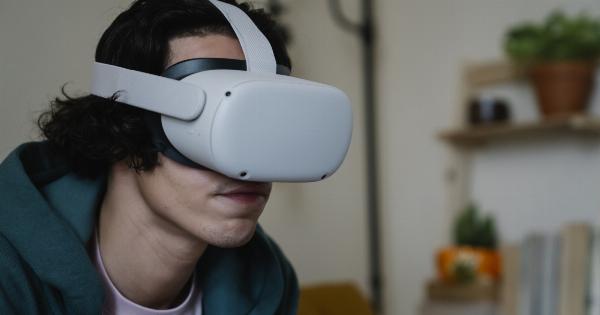Driving is an essential skill for many people, whether it’s for daily commuting, road trips, or simply getting around town. To become a proficient driver, it takes practice, proper training, and a keen awareness of road safety.
However, not everyone possesses the natural ability to excel behind the wheel. For those who struggle with certain aspects of driving, there is now a potential solution – a groundbreaking surgery that can help individuals become better drivers.
The Science Behind the Surgery
The surgery, known as “Driver’s Vision Enhancement” (DVE), aims to improve visual perception and processing in individuals with compromised driving abilities.
The procedure involves enhancing specific visual skills, such as depth perception, peripheral vision, and night vision, to enable individuals to navigate the road with greater confidence and accuracy.
During the DVE surgery, skilled ophthalmic surgeons perform various techniques tailored to each patient’s needs. These may include corneal reshaping, lens implantation, or even laser vision correction.
The goal is to optimize the patient’s visual acuity and address any underlying issues that may hinder their driving performance.
Benefits of DVE Surgery
The advantages of DVE surgery are numerous and can significantly impact an individual’s driving skills and overall safety on the road. Here are some key benefits:.
1. Improved Night Vision
Many individuals struggle with driving at night due to reduced visibility and glare from oncoming headlights.
DVE surgery can enhance night vision capabilities, allowing individuals to better identify obstacles, pedestrians, and road signs in low-light conditions.
2. Enhanced Depth Perception
Depth perception is crucial for judging distances and making accurate decisions while driving. Those who struggle with depth perception may find it challenging to safely maneuver their vehicle.
DVE surgery can help improve depth perception, making parallel parking, changing lanes, and navigating intersections easier and safer.
3. Expanded Peripheral Vision
Peripheral vision plays a vital role in detecting potential hazards from the sides, such as merging vehicles or pedestrians.
DVE surgery can widen an individual’s peripheral vision, enabling them to quickly react to unexpected events and avoid collisions.
4. Reduced Dependence on Glasses and Contact Lenses
Many people require corrective eyewear to see clearly while driving. DVE surgery may decrease the dependence on glasses or contact lenses, offering individuals greater convenience and freedom on the road.
Is DVE Surgery Right for You?
DVE surgery is a significant decision that should be made only after careful consideration. Here are a few factors to help determine if you might be a suitable candidate:.
1. Struggles with Specific Visual Skills
If you consistently face challenges with particular visual skills necessary for driving, such as night vision, depth perception, or peripheral vision, DVE surgery could potentially help address these issues.
2. Desire for Increased Driving Safety
If you value road safety and believe that enhancing your visual abilities could lead to a substantial improvement in your driving skills, DVE surgery might be worth considering.
3. Willingness to Undergo Surgery and Recovery
Like any surgical procedure, DVE surgery involves pre-operative consultations, preparation, the surgery itself, and post-operative recovery. It’s essential to understand the process and commit to the necessary steps for successful outcomes.
The Road to Recovery
After undergoing DVE surgery, patients will typically experience a recovery period during which their vision gradually improves.
It is crucial to follow all post-operative instructions provided by the surgeon, including using prescribed eye drops, avoiding strenuous activities, and attending follow-up appointments. Full recovery can vary from person to person, but most individuals are able to resume driving within a few weeks.
Consultation and Choosing a Surgeon
If you believe DVE surgery could be an option for you, it is crucial to consult with a reputable ophthalmic surgeon who specializes in vision enhancement procedures.
Ask for recommendations from your optometrist or primary care physician and thoroughly research the surgeon’s qualifications, experience, and patient testimonials before making a decision.
Conclusion
Driving is a complex task that requires various skills, including visual perception and processing. For individuals who struggle with certain aspects of driving, DVE surgery offers a potential solution to improve their abilities behind the wheel.
By addressing specific visual skills such as night vision, depth perception, and peripheral vision, this innovative surgery can enhance driving safety and overall confidence on the road. However, it is important to carefully consider the decision, consult with a trusted surgeon, and thoroughly understand the recovery process before proceeding with DVE surgery.






























